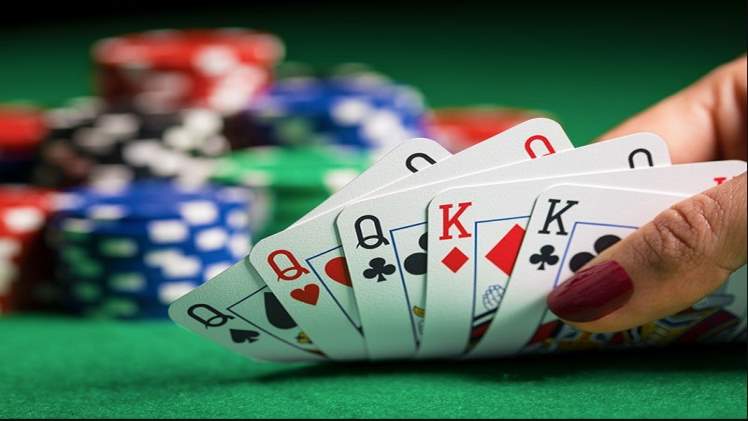Who Manages the Responsible Gaming Database?

As the online gaming industry continues to expand globally, the importance of responsible gaming has become a top priority for regulators, gaming companies, and advocacy groups. Responsible gaming refers to ensuring fair play, protecting vulnerable players, preventing addiction, and promoting ethical gaming practices.
To achieve this, organizations maintain Responsible Gaming Databases, which help track player behavior, enforce self-exclusion policies, and ensure compliance with gaming laws. But who manages these databases, and how do they impact online gaming platforms like Zupee?
This article explores the key players involved in managing responsible gaming databases, their functions, and the impact they have on the online gaming industry.
What is a Responsible Gaming Database?
A Responsible Gaming Database is a system used by governments, regulatory bodies, gaming companies, and industry watchdogs to:
✔ Monitor player activity and identify problematic behavior.
✔ Enforce self-exclusion policies for players who request limits on their gaming activities.
✔ Ensure fair play and protect against fraud and unethical gaming practices.
✔ Help gaming companies comply with legal requirements related to responsible gaming.
These databases play a crucial role in ensuring a safe and fair gaming environment, helping both players and gaming platforms operate within ethical boundaries.
Who Manages the Responsible Gaming Database?
The responsibility for managing responsible gaming databases falls on multiple stakeholders, each playing a vital role in ensuring safe gaming experiences.
A. Government Regulatory Bodies
Many countries have government agencies that oversee gaming laws and enforce responsible gaming measures. These agencies maintain centralized databases to regulate player activity and track industry compliance.
Examples of Government Regulators:
- United Kingdom – UK Gambling Commission (UKGC)
- United States – National Council on Problem Gambling (NCPG)
- India – Varies by state (Sikkim, Nagaland, Goa have gaming regulations)
✔ How They Manage Responsible Gaming Databases:
- Maintain lists of self-excluded players.
- Monitor gaming transactions to detect fraudulent activities.
- Work with gaming operators to enforce fair gaming standards.
Example: The Role of Regulation in India’s Online Gaming Industry
- India does not have a central gaming regulatory authority, but states like Sikkim and Nagaland have their own responsible gaming laws.
- Platforms like Zupee ensure compliance by implementing self-exclusion options, responsible gaming tools, and AI-based fraud detection.
✔ Why It Matters?
Government oversight ensures transparency, accountability, and legal compliance in the online gaming industry.
Gaming Operators & Online Platforms
Gaming companies play a direct role in managing responsible gaming databases. They track player behavior, enforce limits, and implement responsible gaming policies.
How Gaming Platforms Manage Responsible Gaming Databases:
✔ Monitor player betting patterns to detect excessive spending or risky behavior.
✔ Implement self-exclusion programs, allowing players to take breaks from gaming.
✔ Provide deposit and loss limits, enabling players to control their spending.
✔ Use AI & machine learning to identify problematic gaming habits.
Example: Zupee’s Approach to Responsible Gaming
- Zupee promotes responsible gaming by offering tools like spending limits, self-exclusion, and account monitoring.
- AI-driven analytics help detect unusual gaming patterns, ensuring fair play and protecting users.
- zupee ensures that players engage in skill-based games rather than gambling-based games, aligning with responsible gaming standards.
✔ Why It Matters?
Gaming operators are directly responsible for protecting players, making it crucial that they integrate responsible gaming measures into their platforms.
Industry Watchdogs & Advocacy Groups
Several independent organizations work alongside regulators and gaming companies to promote responsible gaming practices.
Key Industry Watchdogs & Their Roles:
- eCOGRA (eCommerce Online Gaming Regulation & Assurance) – Audits gaming platforms for fairness.
- BeGambleAware & GamCare (UK) – Offer support for players facing gaming addiction.
- Responsible Gaming Council (Canada) – Provides research and policy guidance on responsible gaming.
✔ How They Manage Responsible Gaming Databases:
- Maintain lists of self-excluded players across multiple platforms.
- Audit gaming companies to ensure compliance with fair play policies.
- Conduct awareness campaigns to educate players about responsible gaming.
Example: Global Self-Exclusion Programs
- GamStop (UK) – Allows players to self-exclude from all registered gaming platforms.
- ROFUS (Denmark) – A national database for players who want to restrict gaming access.
✔ Why It Matters?
Industry watchdogs provide independent oversight, ensuring that gaming companies and regulators follow responsible gaming policies.
How Responsible Gaming Databases Impact Players
Benefits for Players:
✔ Protects players from gambling addiction through monitoring and self-exclusion.
✔ Ensures fair play by preventing fraud and unethical gaming practices.
✔ Encourages responsible spending with deposit and loss limits.
✔ Provides access to player support and mental health services.
Challenges & Limitations:
Privacy Concerns – Some players worry about how their data is stored and used.
Inconsistent Regulations – Different countries and states have varying responsible gaming policies.
Enforcement Issues – Not all gaming platforms strictly follow responsible gaming practices.
✔ Why It Matters?
Responsible gaming databases help create a safer gaming environment, but players must also be aware of their rights and available protections.
The Future of Responsible Gaming Databases
As online gaming continues to evolve, responsible gaming databases are also improving through technology, regulation, and industry cooperation.
Trends Shaping the Future of Responsible Gaming Databases:
✔ Artificial Intelligence & Machine Learning – AI will help detect and prevent problematic gaming behavior in real time.
✔ Blockchain for Transparency – Secure, decentralized ledgers could improve database management and enhance player trust.
✔ Unified Global Databases – Future gaming regulations may lead to a centralized international responsible gaming registry.
✔ Better Player Education & Awareness – More platforms, including Zupee, are investing in educating players about responsible gaming.
How Platforms Like Zupee Are Adapting to These Changes:
- Implementing AI-powered responsible gaming tools to monitor gaming behavior.
- Offering self-exclusion options to encourage responsible play.
- Ensuring fair play and ethical gaming experiences.
✔ Why It Matters?
As technology and regulations evolve, responsible gaming databases will become more efficient, helping players and gaming platforms maintain ethical gaming standards.
Final Thoughts – Ensuring Safe & Responsible Online Gaming
Responsible gaming databases are managed by a combination of government regulators, gaming platforms, and industry watchdogs. These entities work together to protect players, ensure fairness, and maintain the integrity of online gaming.
Key Takeaways:
Governments regulate responsible gaming databases to enforce fair play.
Gaming platforms like Zupee implement responsible gaming measures, ensuring players enjoy skill-based games safely.
Industry watchdogs & advocacy groups provide independent oversight and support players facing gaming addiction.
AI, blockchain, and centralized databases will shape the future of responsible gaming.
As online gaming continues to grow, staying informed about responsible gaming policies is crucial. Whether you’re a player or an entrepreneur in the industry, understanding who manages responsible gaming databases helps ensure a safer gaming experience for everyone.




